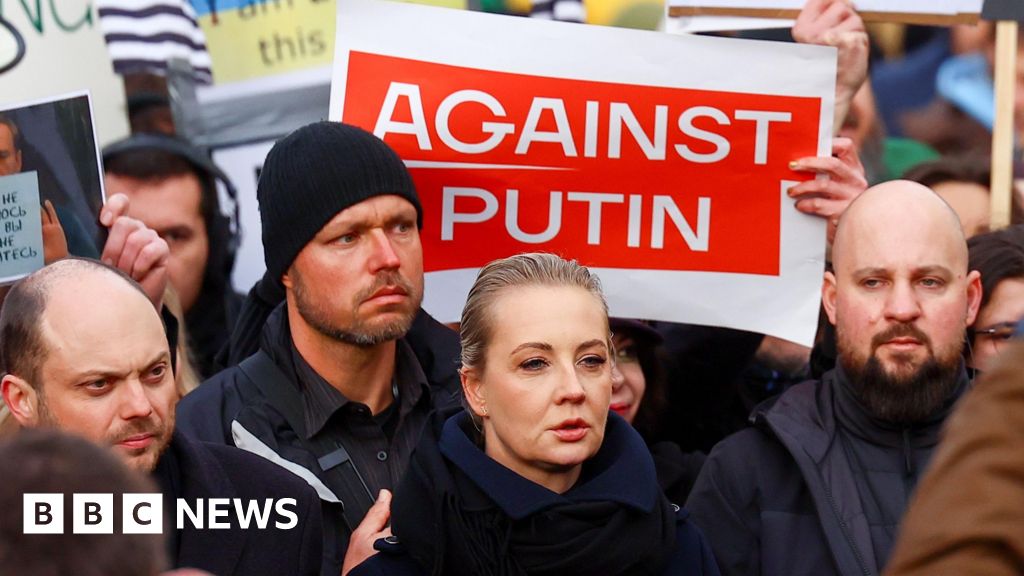ARTICLE AD BOX
By Hugo Bachega
BBC News, Lviv, Ukraine
Image source, Reuters
Image caption,Russian attacks have damaged or destroyed 80% of Mariupol's residential buildings, the mayor says
Efforts to rescue hundreds of people trapped in the basement of a bombed theatre in the besieged city of Mariupol are being hampered by intense battles in the area, the mayor says.
Vadym Boychenko told the BBC teams were only able to clear the rubble of the building during lulls in the fighting.
Ukrainian officials say Russia attacked the site, which was clearly marked as a civilian shelter. Moscow denies it.
Russian forces have encircled the city, which has no electricity, water or gas.
About 300,000 people are trapped inside, as food and medical supplies run out with Russia blocking the entry of humanitarian aid. Russian attacks have hit a hospital, a church and countless apartment blocks, with local officials estimating that about 80% of residential buildings are either damaged or destroyed, a third of them beyond repair.
Mariupol has seen some of the fiercest battles since Russia invaded Ukraine, three weeks ago. The location of the port city, on the Sea of Azov, is strategic for Russia, as it would help it create a land corridor between the eastern regions of Donetsk and Luhansk, controlled by Russian-backed separatists, and Crimea, the peninsula it invaded and annexed in 2014.
"[There is] street fighting in the city centre," Mr Boychenko said, confirming a claim made by Russia on Friday, when it said it was "tightening the noose" around the city.
"There are tanks... and artillery shelling, and all kinds of weapons fired in the area," the mayor said. "Our forces are doing everything they can to hold their positions in the city but the forces of the enemy are larger than ours, unfortunately."
Communication with the city is difficult, with the phone network said to be operational only a few hours a day. Amid unrelenting Russian attacks, residents spend most of their days in shelters and basements, rarely coming outside.
Mr Boychenko said, in a previous interview, that there was no city centre left.
Image source, Reuters
Image caption,Mariupol has seen some of the fiercest battles since Russia invaded Ukraine, three weeks ago
The intense fighting means it is too dangerous for teams to clear the rubble of the destroyed theatre and rescue people from the basement, which withstood Wednesday's attack. "There's no opportunity to do that," Mr Boychenko said. "When it gets quiet for a bit, rubble is being cleared and people get out."
He said he could not provide an update on how many had already left the site. A day earlier, the country's human rights ombudsman said 130 people had been rescued, and that about 1,300 remained trapped.
Satellite images showed the Russian word for "children" had been emblazoned on the ground in two locations outside the imposing Soviet-era building, indicating the place was being used as a civilian shelter. Most of those inside are elderly people, women and children, who are living squeezed in dark rooms and corridors.
In a video address released on Saturday, President Volodymyr Zelensky said some of the people rescued were "seriously wounded" but that, at the moment, there was no information of deaths.
Image source, Maxar/Reuters
Image caption,The theatre in Mariupol before the bombing with the word "children" in Russian clearly visible
President Zelensky also accused Russia of a "war crime" for blocking the access of humanitarian aid to the besieged cities. "This is a totally deliberate tactic," he said. "They [Russian forces] have a clear order to do absolutely everything to make the humanitarian catastrophe in Ukrainian cities an 'argument' for Ukrainians to co-operate with the occupiers."
The authorities in Mariupol say at least 2,500 people have been killed in the city since the start of the war, although they acknowledge that is an underestimate. Some of the dead are being left on streets, as it is too risky to collect them. Many end up being buried in mass graves.
Mr Boychenko, the Mariupol mayor, said 40,000 people had managed to leave the city in the last five days, and that 20,000 others were waiting to be evacuated. Residents are fleeing in private vehicles, he said, as attempts to create official humanitarian corridors have broken down, with Ukraine accusing Russia of attacking the city despite agreeing to ceasefires.
Additional reporting by Maksym Popovych

 2 years ago
16
2 years ago
16








 English (US)
English (US)